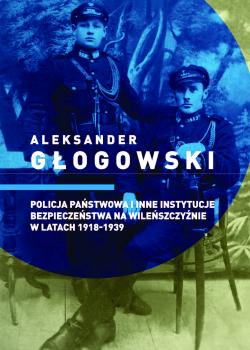Policja Państwowa i inne instytucje bezpieczeństwa na Wileńszczyźnie w latach 1918-1939
Słowa kluczowe:
Vilnius, Vilnius Region, State Police;, Vilnius Regional State PoliceStreszczenie
An analysis of the formation of police institutions in Vilnius and in the Vilnius region in the inter-war period should commence with a brief presentation of the political history events which exerted an influence upon the formation of the state borders in that area. The establishment of formations whose aim was the protection of internal security was a very important element, which, however, was frequently omitted in the historical considerations. This is a direct consequence of the premise which was presented already by Plato, that the ensuring of the internal security of the citizens is one of the basic functions of the state. The police as the state institution whose task is to ensure internal security is therefore an element of eff ective control, exercised by the political authority over a given state territory. This effective control is therefore an attribute which is characterised by the existence of state authority which has dominion over a given territory and the people who inhabit it. Thus one could say that the possession of efficiently operating police formations, apart from the armed forces, is necessary for the state as an instrument which ensures its existence as such. Moreover, the case of Iceland, which does not have military formations, indicates that it is the police which becomes the condicio sine qua non of the existence of the state within the framework of international law. This association may also be visible in the etymology: the word “police” is derived from the Greek word “politeia” i.e. state. This word is also the title of the most famous work of the Greek philosopher Plato.
Rozdziały
-
TABLE OF CONTENTS
-
Wstęp .......... 5
-
ROZDZIAŁ I. ZAGADNIENIA WPROWADZAJĄCE .......... 13
-
ROZDZIAŁ II. WILEŃSZCZYZNA – TERYTORIUM I LUDNOŚĆ .......... 21
-
ROZDZIAŁ III. WILEŃSZCZYZNA W PLANACH POLITYKOW ODRADZAJĄCEGO SIĘ PAŃSTWA POLSKIEGO I W PRAKTYCE HISTORYCZNEJ .......... 29
-
ROZDZIAŁ IV. FORMACJE BEZPIECZEŃSTWA WEWNĘTRZNEGO NA KRESACH PÓŁNOCNO-WSCHODNICH W LATACH 1918-1921 .......... 41
-
Rozdział V. Policja Państwowa Litwy Środkowej .......... 49
-
Rozdział VI. XVI Wileński Okręg Policji Państwowej .......... 63
-
Epilog .......... 79
-
Komendanci policji na Wileńszczyźnie .......... 83
-
Wykaz skrótów .......... 85
-
Spis ilustracji .......... 87
-
Bibliografia .......... 89
-
Stopnie w Policji Państwowej i ich wojskowe odpowiedniki .......... 99
-
Indeks nazwisk .......... 101
-
Indeks geograficzny .......... 105
Downloads
Bibliografia





